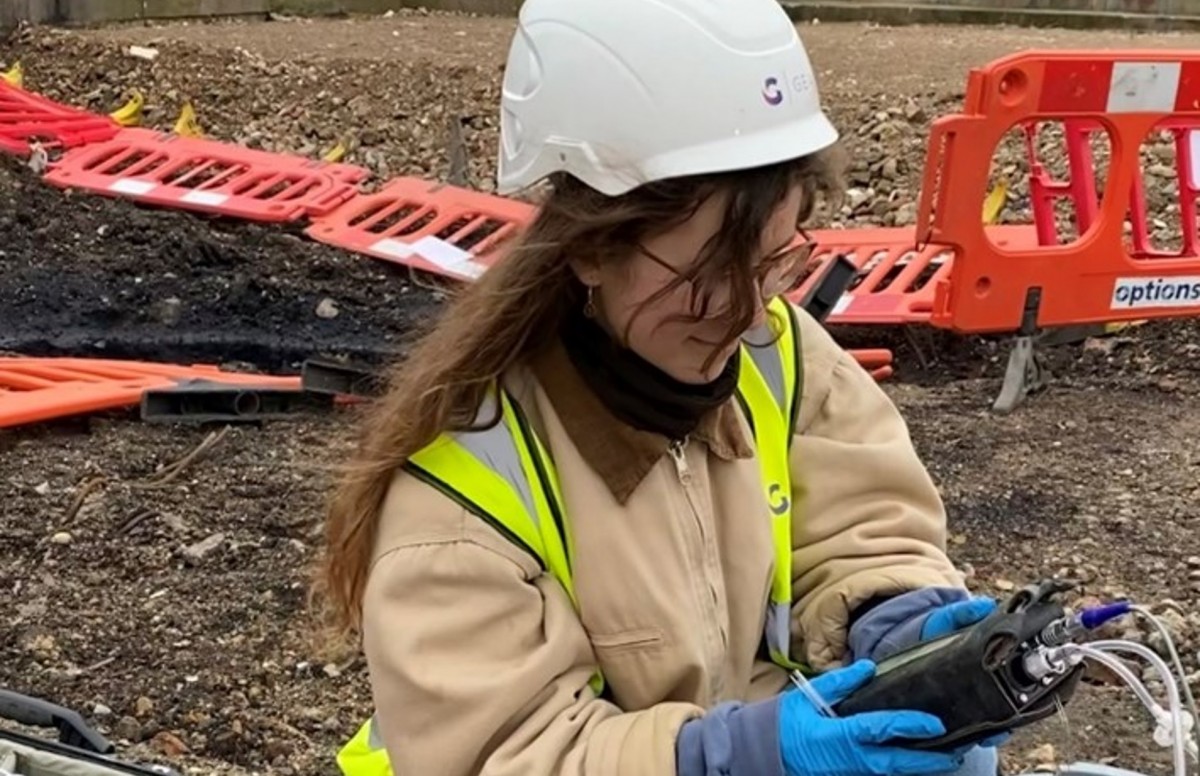Geotheta Can Be Fun For Anyone
Table of Contents9 Easy Facts About Geotheta ShownExcitement About GeothetaThe 9-Second Trick For GeothetaGeotheta Things To Know Before You BuyOur Geotheta PDFs

They conduct site investigations, collect examples, do research laboratory tests, and evaluate data to review the suitability of the ground for construction tasks - Geotechnical Engineers. Based upon their searchings for, geotechnical engineers provide suggestions for foundation style, incline security, keeping structures, and mitigation of geotechnical dangers. They collaborate with various other professionals, such as architects, structural designers, and building groups, to guarantee that geotechnical factors to consider are integrated right into the total task style and implementation
By evaluating the actions and residential properties of dirt and rock, they can determine possible geotechnical risks such as landslides, dirt settlement, or incline instability. Their competence assists stop failings or mishaps that could endanger lives and building. Right here are some comprehensive obligations and duties of a geotechnical engineer: Website Examination: Geotechnical designers conduct website examinations to collect information on subsurface problems.
They interpret the information to comprehend the residential properties and habits of the dirt and rock, including their toughness, leaks in the structure, compaction qualities, and groundwater problems. Geotechnical Evaluation and Layout: Geotechnical designers examine the data gathered during site examinations to evaluate the stability and suitability of the website for construction projects. They carry out geotechnical computations and modeling to examine aspects such as birthing capacity, negotiation, incline security, lateral planet stress, and groundwater flow.
The Of Geotheta
Structure Style: Geotechnical designers play a crucial duty in creating structures that can safely sustain the designated structure. They analyze the dirt conditions and tons needs to figure out the proper structure kind, such as shallow structures (e.g., grounds), deep foundations (e.g (https://www.goodreads.com/user/show/180594840-ian-hammond)., stacks), or specialized methods like dirt improvement. They think about variables such as negotiation restrictions, birthing ability, and soil-structure communication to develop optimal structure layouts
They review building strategies, display site tasks, and carry out field inspections to confirm that the style referrals are adhered to. If unanticipated geotechnical problems arise, they evaluate the situation and supply recommendations for remediation or adjustments to the design. Risk Assessment and Reduction: Geotechnical engineers examine geotechnical hazards and threats linked with the task website, such as landslides, liquefaction, or soil erosion.

Partnership and Interaction: Geotechnical engineers function very closely with other professionals involved in a job, such as engineers, structural designers, and construction groups. Reliable communication and partnership are vital to integrate geotechnical factors to consider into the total task design and construction process. Geotechnical designers provide technological proficiency, response queries, and make sure that geotechnical requirements are fulfilled.
The Greatest Guide To Geotheta
Here are some sorts of geotechnical engineers: Foundation Engineer: Foundation engineers concentrate on creating and analyzing structures for structures. They examine the soil conditions, tons requirements, and site attributes to determine the most proper structure kind and design, such as shallow foundations, deep structures, or specialized methods like pile foundations.
They evaluate the aspects influencing incline stability, such as soil homes, groundwater conditions, and slope geometry, and develop techniques to avoid incline failings and alleviate dangers. Earthquake Designer: Quake designers concentrate on analyzing and developing frameworks to withstand seismic pressures. They analyze the seismic threat of a website, examine soil liquefaction capacity, and establish seismic style criteria to make certain the safety and durability of frameworks during quakes.
They do area testing, accumulate examples, and analyze the accumulated information to identify the soil properties, check out here geologic developments, and groundwater problems at a site. Geotechnical Instrumentation Engineer: Geotechnical instrumentation engineers concentrate on surveillance and determining the behavior of dirt, rock, and structures. They install and preserve instrumentation systems that keep track of variables such as dirt settlement, groundwater levels, slope activities, and structural variations to examine performance and supply early cautions of prospective concerns.
Geotheta Things To Know Before You Buy
They perform tests such as triaxial tests, debt consolidation examinations, direct shear tests, and leaks in the structure tests to collect information for geotechnical analysis and design. Geosynthetics Designer: Geosynthetics engineers specialize in the design and application of geosynthetic products, such as geotextiles, geogrids, and geomembranes. They utilize these materials to enhance soil stability, strengthen slopes, provide drain solutions, and control erosion.
They tend to be investigative people, which indicates they're intellectual, introspective, and analytical. They are interested, systematic, sensible, logical, and logical. Some of them are additionally social, implying they're kind, generous, cooperative, patient, caring, practical, empathetic, sensible, and pleasant - Tailings Engineer.
In the office setting, geotechnical designers use specialized software application tools to do estimations, produce designs, and evaluate data. They prepare reports, evaluation project requirements, connect with customers and employee, and coordinate task tasks. The workplace setup offers a conducive atmosphere for research, evaluation, and collaboration with other experts included in the project.
The Definitive Guide for Geotheta
They often see project websites to perform site investigations, examine geotechnical problems, and collect information for analysis. These sees entail traveling to different places, often in remote or tough surfaces. Geotechnical designers might execute dirt tasting, conduct tests, and screen construction activities to make certain that the geotechnical aspects of the task are being executed properly.
Geotechnical designers also work in specialized geotechnical labs. In these centers, they carry out experiments, perform tests on dirt and rock examples, and evaluate the design residential or commercial properties of the materials. Geotechnical research laboratory engineers function extensively in these environments, taking care of screening equipment, running tools, and recording data. They work together with other laboratory team to make certain accurate and dependable screening results.